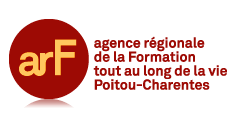L'UE présente une stratégie pour repenser l'éducation
 Le chômage des jeunes atteint presque 23% dans l'Union, alors que plus de 2 millions d'emplois restent vacants. Face à cette situation, la Commission européenne présente «Repenser l'éducation», une nouvelle stratégie qui encourage les États membres à agir immédiatement pour garantir aux jeunes l’acquisition des aptitudes et des compétences requises par le marché du travail.
Le chômage des jeunes atteint presque 23% dans l'Union, alors que plus de 2 millions d'emplois restent vacants. Face à cette situation, la Commission européenne présente «Repenser l'éducation», une nouvelle stratégie qui encourage les États membres à agir immédiatement pour garantir aux jeunes l’acquisition des aptitudes et des compétences requises par le marché du travail.Cette stratégie appelle les Etats à se concentrer davantage sur les acquis de l'apprentissage, c'est-à-dire les connaissances, les aptitudes et les compétences acquises par l'apprenant.
La Commission rappelle que es compétences de base en lecture, en écriture et en calcul doivent encore être sensiblement améliorées, de même qu'il convient de développer les compétences entrepreneuriales et l'esprit d'initiative (voir notre actu du 22/11/2012).
Pour garantir une meilleure concordance entre l'éducation et les besoins des apprenants et du marché du travail, la Commission recommande une modernisation des méthodes d'évaluation et encourage l'utilisation de TIC et de ressources éducatives ouvertes dans tous les contextes d'apprentissage.
Cela s’accompagne par une actualisation des compétences des enseignants qui sont invités à se former régulièrement.
La stratégie appelle également les États membres à renforcer les liens entre les systèmes éducatifs et les employeurs, à introduire l'entreprise dans la salle de classe, et à permettre aux jeunes de découvrir le monde du travail par un recours accru à l'apprentissage en milieu professionnel. Parmi les autres mesures proposées, on citera notamment un nouvel objectif de référence en matière d'apprentissage des langues, des orientations sur l'évaluation et le développement de la formation à l'entrepreneuriat, ainsi qu'une analyse de l'incidence de l'utilisation des TIC et des RÉL dans l'enseignement et l'apprentissage.
Enfin, les États membres doivent améliorer la reconnaissance des certifications et des compétences, y compris celles acquises en dehors des systèmes d'éducation et de formation formels.
Plus d'informations sur la stratégie "Repenser l'éducation" sur le site europa.eu.
 Η ανεργία των νέων έφθασε σχεδόν το 23% στην ΕΕ, ενώ οι περισσότερες από 2 εκατομμύρια θέσεις εργασίας παραμένουν κενές. Αντιμέτωποι με αυτή την κατάσταση, η Ευρωπαϊκή Επιτροπή παρουσιάζει «Επανεξετάζοντας την Παιδεία", μια νέα στρατηγική που θα ενθαρρύνει τα κράτη μέλη να αναλάβουν άμεση δράση για να διασφαλίσει ότι οι νέοι άνθρωποι να αποκτήσουν τις δεξιότητες και τις ικανότητες που απαιτούνται από την αγορά εργασίας (βλέπε νέα μας 22/11/2012 ). Περισσότερα...
Η ανεργία των νέων έφθασε σχεδόν το 23% στην ΕΕ, ενώ οι περισσότερες από 2 εκατομμύρια θέσεις εργασίας παραμένουν κενές. Αντιμέτωποι με αυτή την κατάσταση, η Ευρωπαϊκή Επιτροπή παρουσιάζει «Επανεξετάζοντας την Παιδεία", μια νέα στρατηγική που θα ενθαρρύνει τα κράτη μέλη να αναλάβουν άμεση δράση για να διασφαλίσει ότι οι νέοι άνθρωποι να αποκτήσουν τις δεξιότητες και τις ικανότητες που απαιτούνται από την αγορά εργασίας (βλέπε νέα μας 22/11/2012 ). Περισσότερα...






/https%3A%2F%2Fprofilepics.canalblog.com%2Fprofilepics%2F1%2F0%2F1076071.jpg)